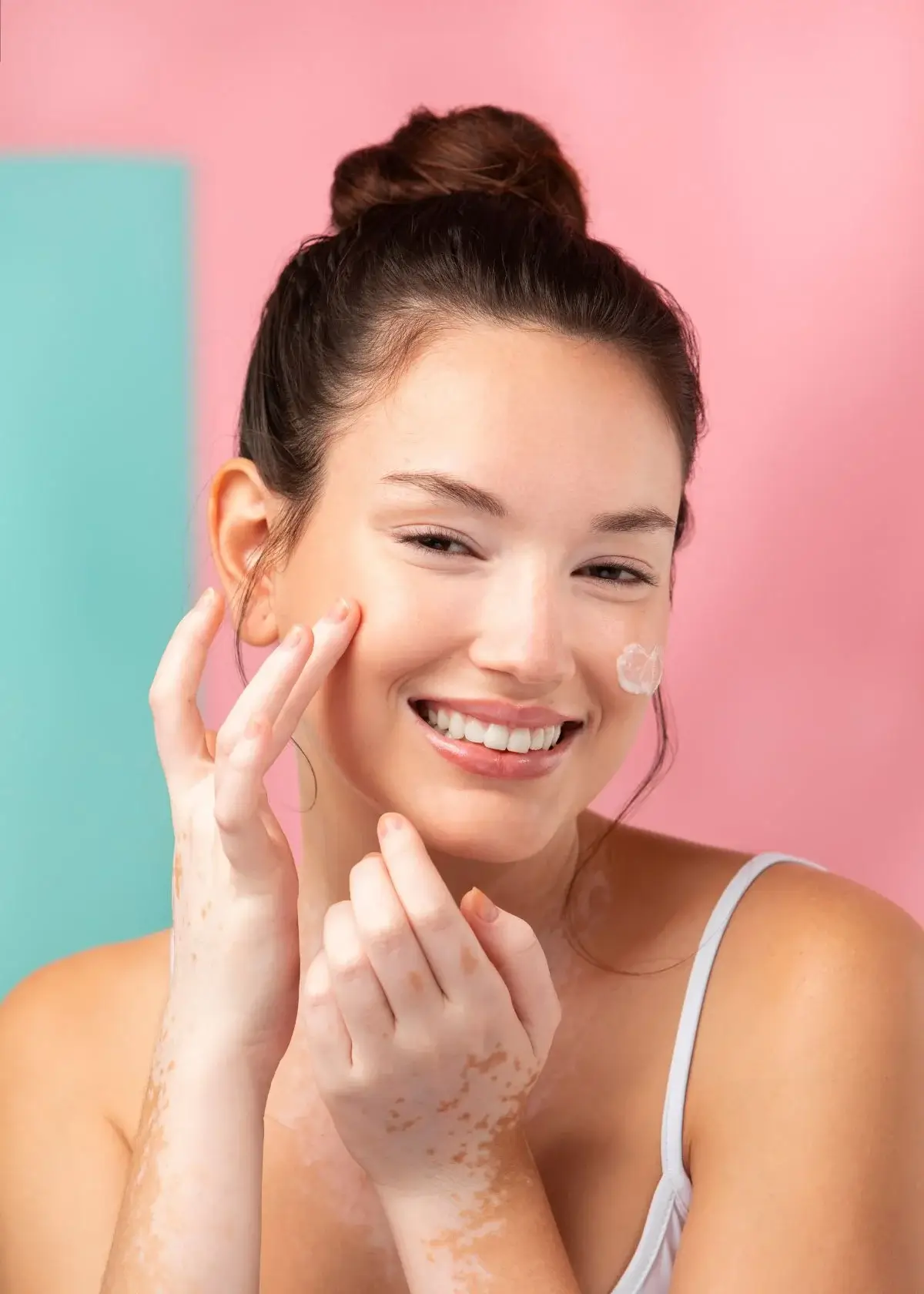Keeping your skin safe from harmful UV rays is a crucial part of any skincare routine, especially if you're someone who has acne-prone skin. The Korean beauty industry offers a wide range of skincare products, including sunscreens, which have recently gained immense popularity. However, with many available options, choosing the right sunscreen can take time and effort. In this blog, we'll guide you through the essential factors to consider when selecting a K-beauty sunscreen suitable for acne-prone skin.
SPF & PA Ratings
Choose a Korean sunscreen with at least SPF 30 to ensure adequate sun protection, but ideally, opt for SPF 50 or higher. You should also consider the PA rating, which measures protection against UV-A rays. Korean sunscreens typically have three levels of PA protection, with PA+++ being the highest. Look for a sunscreen with at least SPF 50+ and PA+++ for maximum protection against harmful UV rays.
Ingredients
When choosing a Korean sunscreen for acne-prone skin, reviewing the ingredient list is essential. Avoid sunscreens containing comedogenic ingredients like coconut oil, cocoa butter, and mineral oil, as they can clog pores and worsen acne. Instead, opt for sunscreens containing non-comedogenic ingredients like Zinc and Titanium Dioxide or Hyaluronic acid that provide added moisturization for the skin.
Formulation
Korean beauty products are known for their lightweight and fast-absorbing formulations; the same rule applies to Korean sunscreens. Avoid heavy, greasy sunscreens that could clog pores and cause breakouts. Instead, opt for lightweight formulations like gel or water-based sunscreens that provide excellent sun protection and are gentle on the skin.
Waterproof or Water-Resistant
Whether you're going for a swim, sweating profusely, or simply enjoying a sunny day outdoors, opting for a waterproof or water-resistant sunscreen is vital. This will ensure that your skin remains protected against harmful UV rays, even when exposed to water or sweat. Opt for a sweat-resistant or waterproof sunscreen to ensure your skin is protected no matter what.
Reviews and Ratings
Lastly, read product reviews and ratings before purchasing any Korean sunscreen. Reviews can help you determine which sunscreen suits acne-prone skin and which may cause more breakouts. Often reviews may mention factors such as formulation, texture, or consistency, which can help inform your buying decision.
Choosing the right Korean sunscreen for acne-prone (find the Korean Skincare for Acne here) skin requires careful consideration of the SPF & PA ratings, ingredients, formulation, and water resistance. Before purchasing a Korean sunscreen, you must know your skin type, understand its sensitivity to various ingredients, and consider your daily lifestyle and routine. Using the tips in this blog, you can choose a Korean sunscreen that will provide maximum sun protection without worsening your acne-prone skin. Remember that sunscreen is a crucial part of any skincare routine, and wearing it regularly can help prevent premature aging and skin damage caused by excessive sun exposure. Protect your skin and keep looking fabulous!
Finding the perfect sunscreen for acne-prone skin can be a challenge. But fear not, beauty lovers! Our expert beauty editors have researched and found the best Korean sunscreen for acne-prone skin. We've got you covered with various options that will protect your skin from harmful UV rays while also being gentle on your acne-prone skin. So, what are you waiting for? Click the link to discover your next favorite Korean sunscreen for acne-prone skin!
What ingredients should I look for in a Korean sunscreen for acne-prone skin?
When searching for a Korean sunscreen suitable for acne-prone skin, prioritize products labeled as "non-comedogenic" to prevent clogging pores. Look for key ingredients like zinc oxide or titanium dioxide in physical sunscreens, as they sit on the skin's surface and deflect UV rays without aggravating acne. Besides, to calm any irritation, consider sunscreens with soothing agents like aloe vera, green tea extract, or Centella Asiatica. Avoid products containing potential acne triggers, such as fragrances, alcohol, or heavy oils. Opt for sunscreens with a lightweight, oil-free formula that won't feel heavy or exacerbate existing breakouts.
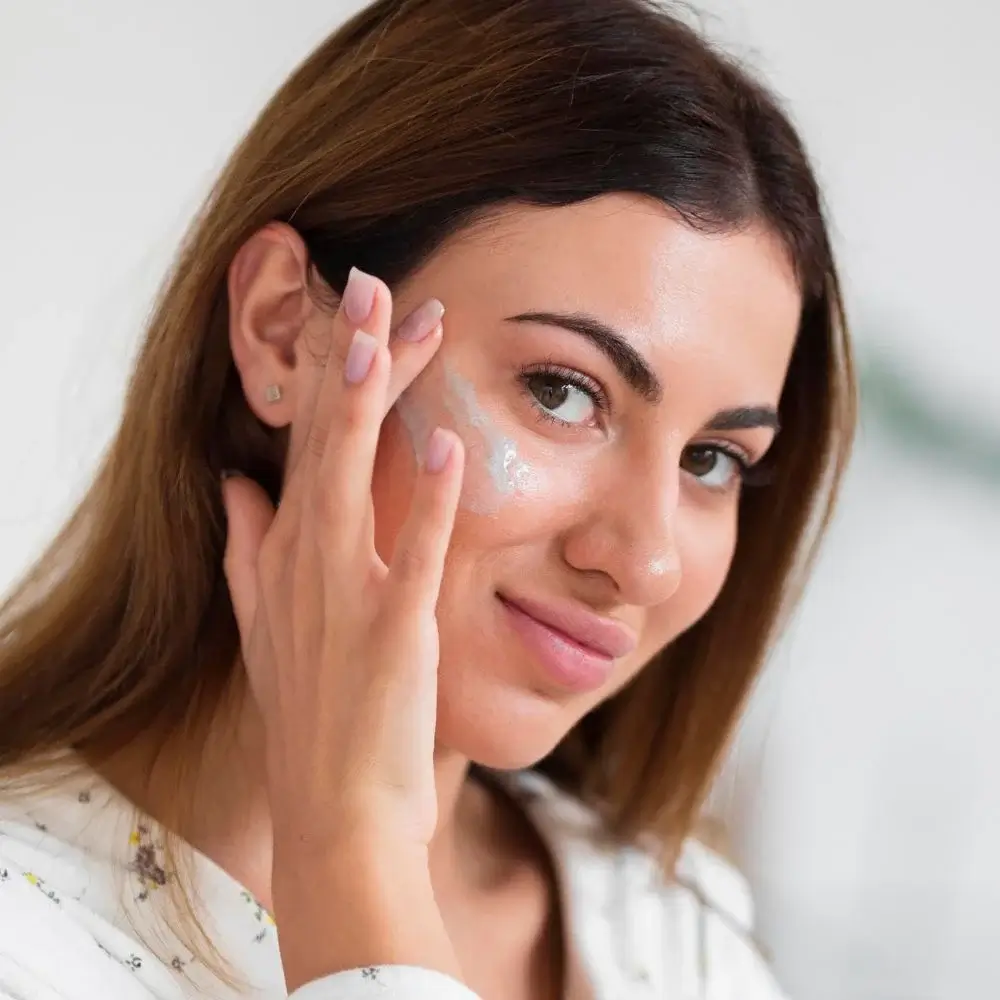
What popular Korean sunscreen brands are known for catering to acne-prone skin?
Several Korean sunscreen brands are renowned for catering to acne-prone skin. Some popular options include COSRX, known for its acne-targeting formulations with gentle ingredients and lightweight textures. Purito is another beloved brand offering reef-safe and non-irritating sunscreens suitable for sensitive, acne-prone skin. Klairs provides sunscreens with a high protection factor, featuring calming properties to soothe inflammation. Keep Cool is favored for its oil-free sunscreens, ensuring comfortable and non-greasy wear for acne-prone individuals. These brands focus on non-comedogenic and effective formulations, making them trusted for acne-prone skin.
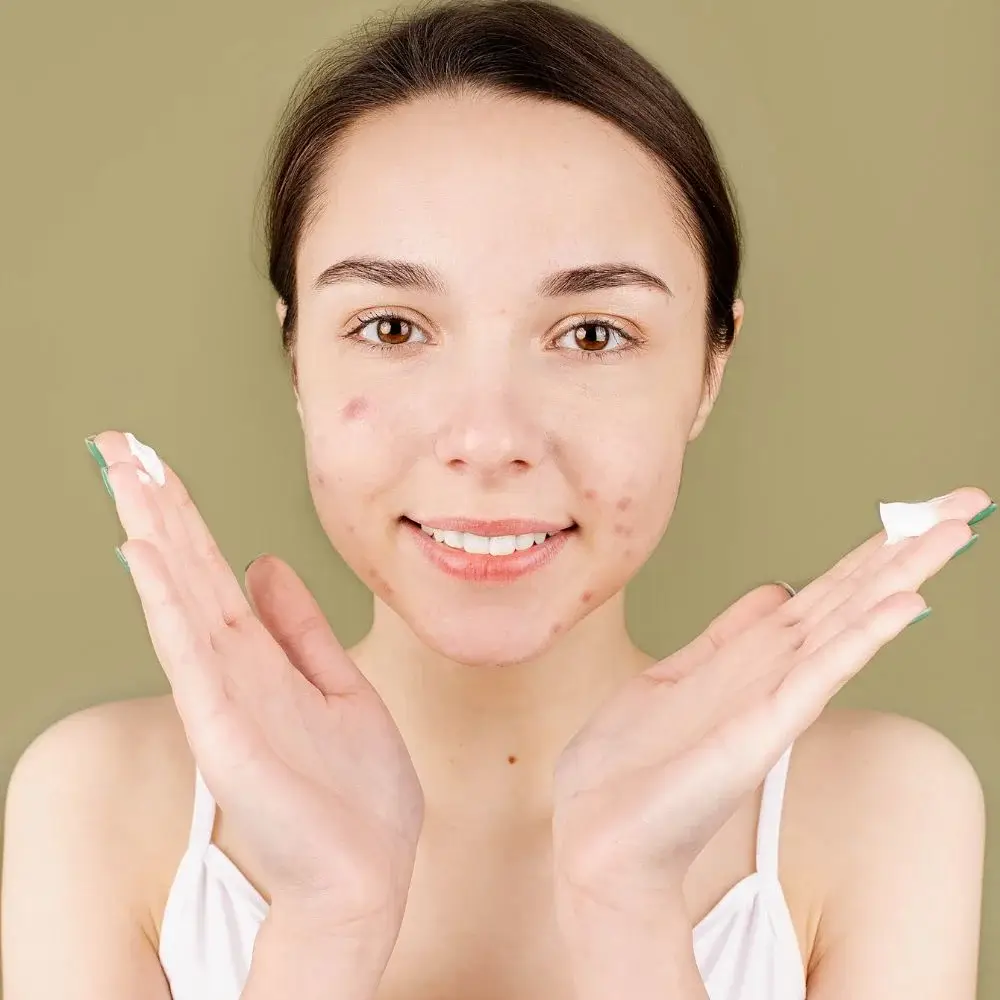
What is the difference between physical and chemical Korean sunscreens for acne-prone skin?
Physical and chemical Korean sunscreens differ in how they protect the skin from harmful UV rays. Physical sunscreens contain mineral-based ingredients like zinc oxide or titanium dioxide, forming a protective barrier that reflects UV radiation on the skin's surface. They are less likely to irritate acne-prone skin due to their gentle nature. On the other hand, chemical sunscreens contain active ingredients like avobenzone or octocrylene that absorb UV rays and convert them into heat, then release them from the skin. While chemical sunscreens are often cosmetically elegant, some individuals with acne-prone skin may find them comedogenic or irritating.
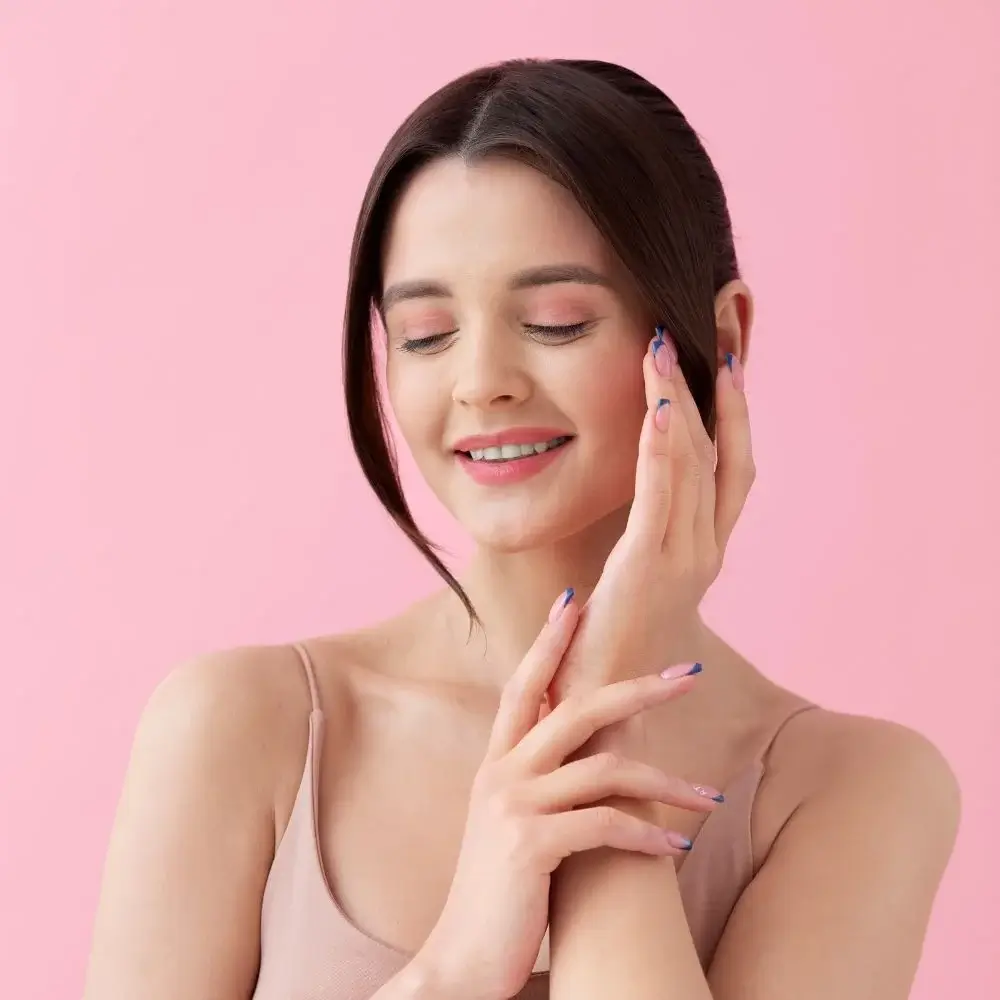
How do I determine my skin type to find the best Korean sunscreen for acne-prone skin?
To find the most suitable Korean sunscreen for acne-prone skin, determine your skin type using a straightforward method. Wash your face with a gentle cleanser, pat it dry, and leave it product-free for a few hours. Afterward, observe your skin's behavior: You likely have oily skin if you notice excess oil and shine. Dry and tight-feeling skin indicates dry skin. Combination skin exhibits oiliness in the T-zone but dryness in other areas. Lastly, you may have normal skin if your skin remains balanced without excessive oil or dryness. Knowing your skin type will help you select a sunscreen formula that meets your needs.
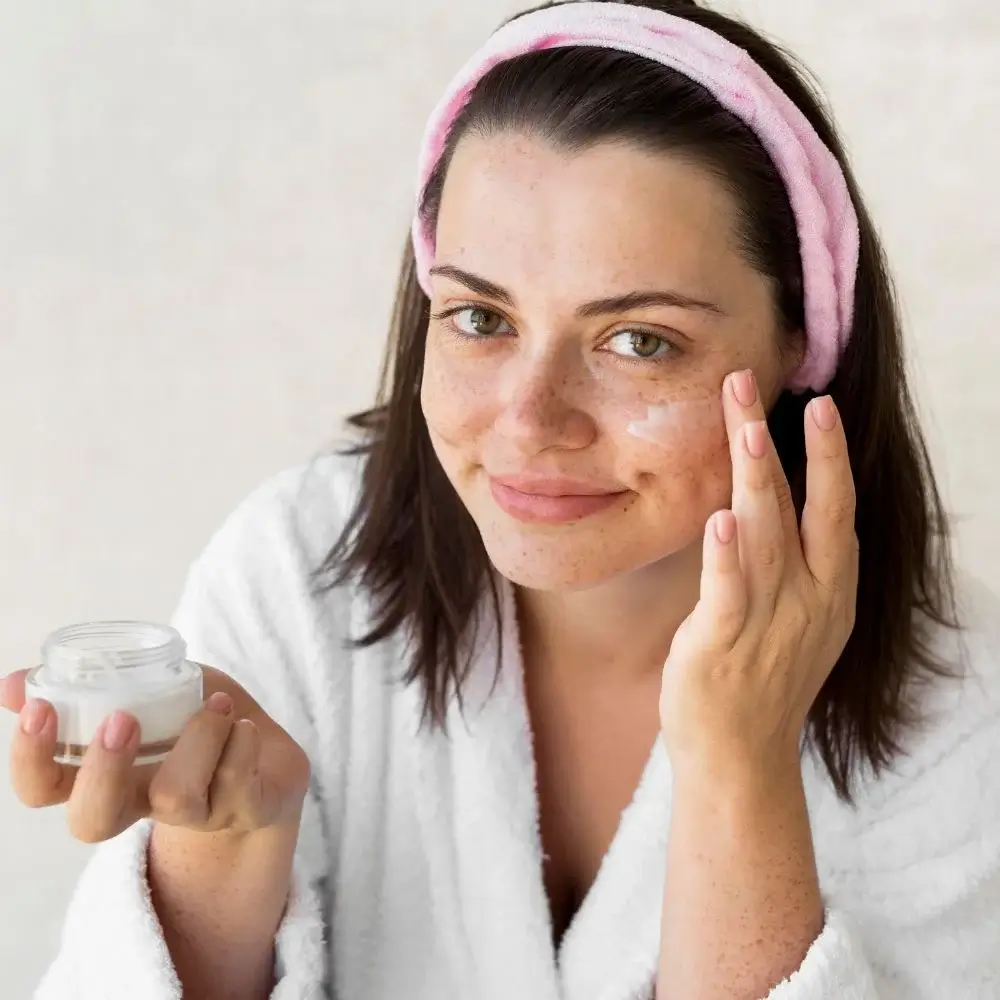
How can I incorporate Korean sunscreen into my makeup routine for acne-prone skin?
Incorporating Korean sunscreen into your makeup routine for acne-prone skin is effortless with a few simple steps. Start by cleansing and moisturizing your face thoroughly. Then, apply the Korean sunscreen evenly, ensuring complete coverage. Allow it to set for a few minutes before proceeding with your makeup. Opt for oil-free, non-comedogenic makeup products to reduce the risk of clogging pores. Choose a lightweight, matte-finish foundation or a BB cream that complements the sunscreen. Avoid heavy powders and opt for mineral-based ones if needed. Regularly cleanse your face to remove makeup and sunscreen, preventing pore-clogging residues.
Should I consult a dermatologist before selecting a Korean sunscreen for acne-prone skin?
It's advisable to consult a dermatologist before choosing a Korean sunscreen for acne-prone skin, especially if you have specific skin concerns or conditions. Dermatologists can analyze your skin type, assess any underlying issues, and recommend suitable sunscreen ingredients and formulations to address your needs effectively. They can provide personalized advice based on your skin's sensitivity and reactions to different products. Moreover, a dermatologist can ensure your sunscreen won't interfere with its efficacy if you use acne medications or treatments. Seeking professional guidance will help you make an informed decision and achieve optimal protection for your acne-prone skin.


